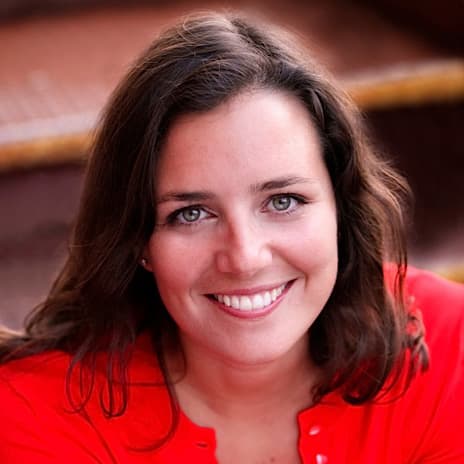Advertisement
Commentary
Kara Goucher is running for herself
Resume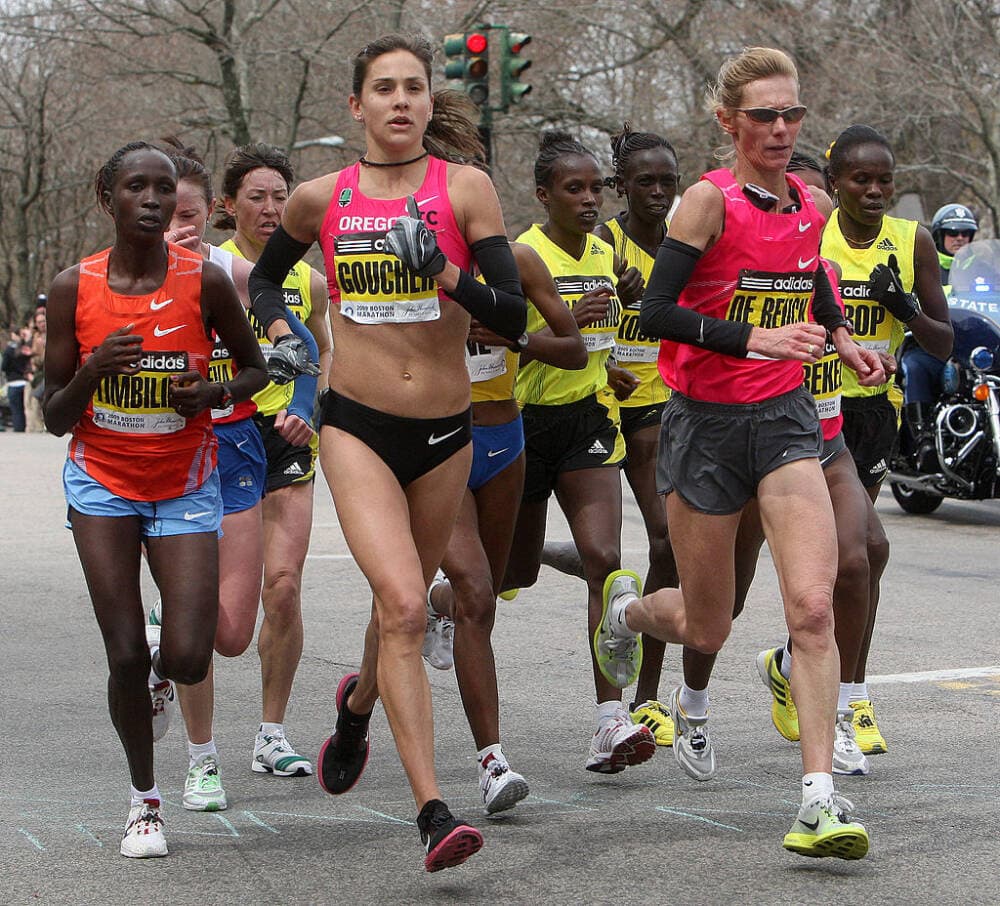
Editor’s note: Kara Goucher is a two-time Olympian, a world championship silver medalist and a two-time podium finisher at World Marathon Majors (including the Boston Marathon, where she finished third in 2009). She is widely considered to have brought about a renaissance in American women’s distance running: her third-place finish at the New York City Marathon in 2008 was the first time an American woman found the podium in a major marathon in nearly 15 years.
Today, she is known as much for her gritty athletic performances as she is for her advocacy of clean and safe sport. Her testimony was critical in the cases brought by the U.S. Anti-Doping Agency (USADA) and the U.S. Center for SafeSport against Alberto Salazar, which resulted in his lifetime ban from the sport, and intense scrutiny of Nike and its elite — and now defunct — running team, The Oregon Project. She includes many behind-the-scenes details of those investigations, including the emotional and sexual abuse she experienced, in her memoir "The Longest Race,” which is now a New York Times best-seller.
Cog talked to Goucher as part of our 2023 Boston Marathon coverage. Mostly, we talked to her about what it was like to be one of the fastest women in the world. She also told us about her fondness for the Newton Hills, her heartbreak in Boston in 2009, her experience during the 2013 marathon bombings and what finally convinced her to get a tattoo of the Olympic rings.
Goucher and I are contemporaries, almost exactly the same age. I’ve followed her running career from the jump: if she was on the cover of Runner’s World, it’s safe to assume I bought a copy. I suppose that’s why her book, and parts of our conversation, were so unsettling to me. My impression of her experience as a star athlete wasn't true. This two-time Olympian — this superhuman who ran her fastest marathon 7 months after giving birth (in the 2011 Boston race) — was, for many years, surrounded by people who made her doubt her abilities and her instincts. They made her question whether she was enough, a warped sense of reality she was alone with for years.
She’s telling herself a different story now.
-- Cloe Axelson
This conversation, which is an extended version of the piece produced for broadcast on April 17, 2023, has been edited for length and clarity.
Growing up in Duluth, Minnesota
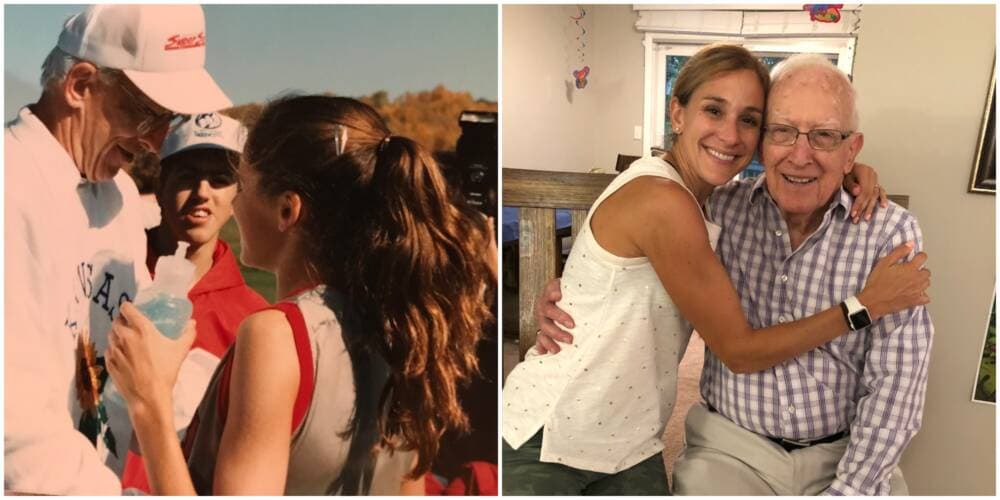
I was born in New York, but my father died a week before my fourth birthday (he was killed by a drunk driver), and so we moved to Duluth, in northern Minnesota, to be closer to my grandparents, my mom's parents. I’m very proud of where I grew up, up North — I have it tattooed on my body. I think that it really influenced who I became. I grew up in a very outdoorsy community, with people that just work hard and put family first.
What it takes to be one of the fastest women in the world
I love running so much and, but I don't necessarily miss the super strict lifestyle of trying to be the fastest one of the fastest women in the world. You're thinking about everything you're putting in your body. You're wondering: should I be standing here, should I be going to that event at my son's school?
What I do miss, though, is having that level of fitness. I used to love the day before a track meet when I knew I was fit. I’d go to the track and do some strides and I could just feel it: I'm sharp, I'm ready to go, ready to race anyone.
I love the “bell lap,” the final lap, because that was the place where it could be scary or it could be amazing. When I hear the bell lap now, I still crave it; how in the moment, with all this hope and knowing that maybe I can flip a switch in, knowing that maybe I can do something special.
But, you know, that's just, that's just life: You get slower.
Finally getting her Olympic rings tattoo
Becoming an Olympian was all I ever wanted. I was obsessed with the idea of becoming an Olympian
I made the Olympic team in 2008, and I was a medal favorite, but I didn't win a medal. I didn't even come close. And my team and coaches at the time saw it as a failure. And so I never thought about getting my Olympic rings tattooed because, I just thought I didn't earn it; I didn't do anything special here.
And then I made it again in 2012, in the marathon. And even though I enjoyed the experience the second time around, I wasn't on the podium or anything.
And then I thought, well, in 2016, I'll definitely get the tattoo, because that's the hardest team I'll ever have had to make. And I fought so hard, but I didn't make it – I got fourth during the trials, and only the top three finishers go. I thought, that part of my life is over.
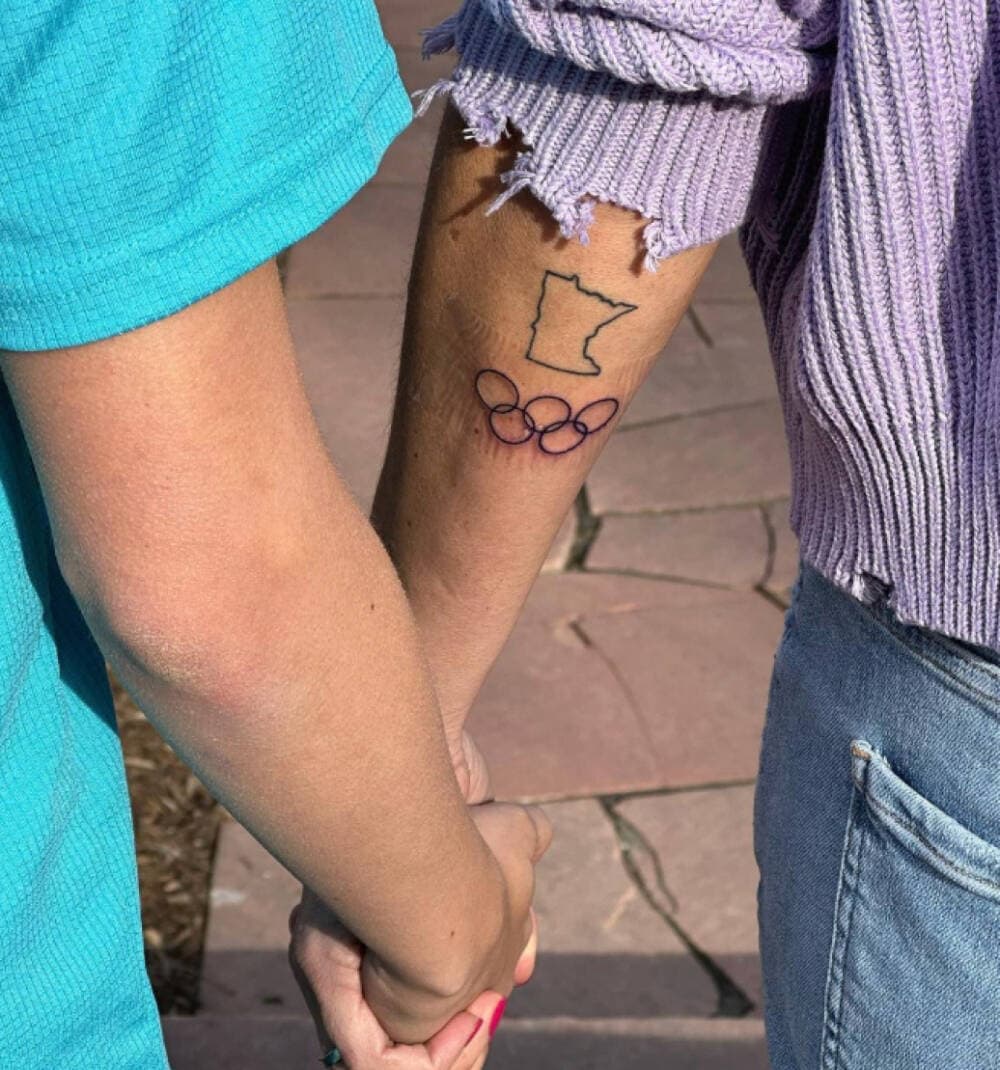
But about a year ago, my son Colt got into running and he started saying, Why don't you have the Olympic rings tattooed, Mom? Why don't you have it? We live in Boulder, so there's other Olympic parents here. And he just thought I should have one.
Then, about a month ago,he came home from practice and said – talking to me like I'm an adult – Mom, it's a big deal. You should be proud. It's a big deal. And something about the way he was saying it, I was like, okay. And that night I just made an appointment.
Colt makes me see things differently. He makes me see things that things were important, and I did do my best.
Loving the Boston Marathon
Running the Boston course reminded me of the neighborhoods where I grew up. There were trees everywhere and families out on race day, I loved it.
I actually love the Newton Hills the most. Running those hills is where I felt most connected to the community.
I was also very into the history of the Boston Marathon. Someone gave me a book about it, and I remember devouring it, and it basically went through every year of the marathon. And I just thought, “Oh my God, I want to be in a chapter in this book so badly.”
The 2009 Boston Marathon
When I was in the lead, especially in those last few miles that, people are finally being able to see you. And I could literally see on the excitement on their faces. And it didn't make me feel pressure. It made me feel good. Like they believe I can do this. They believe I'm here to do this.
I was really good at trusting my intuition. I was really good.
You can make a plan with your coach and you can train, but you have to be able to adjust to what's happening. And I feel like in the past that's what had made me great: I was really good at trusting my intuition. I was really good.
I think the harder part was not that I didn't finish higher on the podium. It was that my gut told me, you need to go now. And when I opened up I felt better. I've never watched any of the footage, but my husband's said, you started to pull away. And then also you slowed down and let them catch back up to you.
The 2013 Boston Marathon
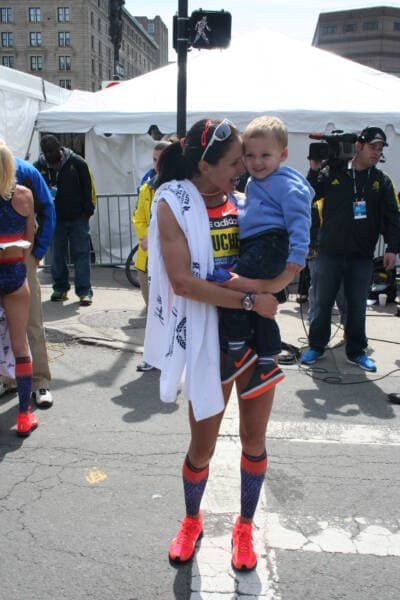
After I finished, it was just like any other marathon. We moved on to media. For the first time ever, I’d set up a massage with someone with a Boston Marathon for after the race and as I went through the media, I had asked my family to go get me lunch.
We all met back at my hotel room. It was my sister, my mom, my son, my husband and my aunt. And I was eating the sandwich, getting ready to go get my massage, when I heard something I've never heard before — this boom. I could feel it, like I could feel it in my chest, in the air, the windows rattled. I had never experienced anything like that in my life. And I immediately was terrified.
I feel guilty even talking about this because I didn't lose anyone that I love that day. But it was just so scary.
It was a really big loss of innocence, I think, for me. Loving the sport growing up, watching Grandma’s Marathon and realizing that people could potentially be vulnerable and in danger just watching their loved ones. It just really affected me in the way I looked at running after that.
We ended up having to take my son to a child psychologist who put all of these Playmobile people on the table, and gave him a little black ball. And she said, What happened? And he knocked all the people off the table. And he said, “it went boom. And mommy cried and people died and mommy scared.” It blew my mind because he was only two and a half years old.
___
The lack of support she received from her coaches and sponsors after the birth of her son
I thought, I’ll be able to have a baby and run professionally; I'll be able to do that. But it was definitely harder than I thought it was going to be. I didn't have the support I thought I was going to have. I thought that the whole ecosystem around marathoning and running would be built in, but it wasn't like that at all.
Even going to a race and saying, “I need an extra hotel room and an extra ticket because I have to find someone to take care of my child,” was met with, What now?
I felt a lot of pressure contractually [from her sponsor at the time, Nike], but also just publicly, to return quickly.
There was no acknowledgment that I gave birth and that my body hadn’t healed yet. I was wearing a diaper for something like three months because I couldn't stop bleeding.
I say to other mom athletes: don’t what I did. Yes, It looked like a success. And, I'm glad I ran that 2011 Boston Marathon when my son was 7 months old. It actually ended up being my PR, my personal best. But I didn't enjoy it.
Everybody around me just kind of was acting like I got out of shape and gained weight. There was no acknowledgment that I gave birth and that my body hadn’t healed yet. I was wearing a diaper for something like three months because I couldn't stop bleeding.
It became very important to me to make sure nobody else ever felt that way when they were returning to competition. I think we've seen a better way modeled by [Kenyan middle distance runner] Faith Kipyegon. She took a complete year off before she started training and came back and became world champion, Olympic champion. And she has this daughter to experience it with. And I think we need to shift how we look at all of this.
Her life-long love of running
I can never thank my grandpa enough for introducing me to running — it’s such a freeing thing for me. I come back from a run, and I feel whole. I feel like nothing is too big to overcome.
I loved running before I knew I was good at it, and I'm glad I was good at it – it completely changed my life. I feel like now I'm at that point back to when I discovered it. I don't have any fitness goals or racing goals or anything like that anymore, but I look forward to my run every single day.
I was driving my son to school the other morning and there was a woman running super, super slow with her dog. He said: Mom, that's going to be you when you're in your ‘80s. And I said, I hope so. I hope so.
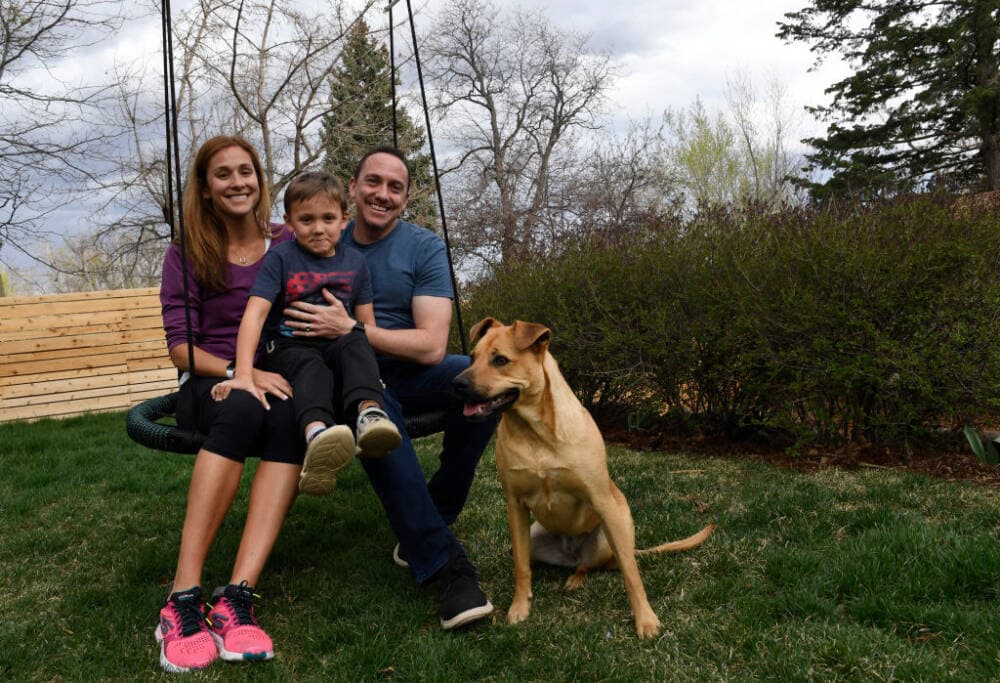
This piece was produced by Cloe Axelson with help from Sara Shukla and David Greene. The audio version was mixed by Paul Calo.
